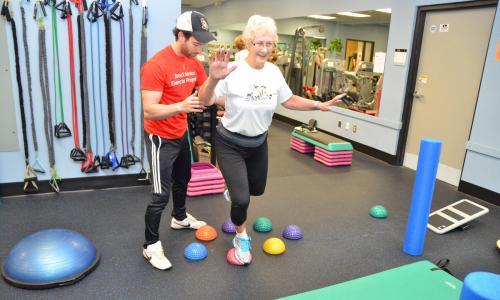
I joined my first co-op placement at Delta-Q Technologies to learn more about marketing in hopes to narrow down what I wanted to do in the future. Coincidentally, Delta-Q’s vision is to charge the future and drive the world’s transition into electric energy. The company designs, tests, and manufactures robust battery chargers that improve the performance of their customer’s electric vehicles and industrial machines. These include electric scooters, drones, unmanned aerial vehicles, construction equipment, golf carts, and more.
While I was very excited to embark on my journey as a marketing co-op student, starting at a new job can be nerve-wracking. Learning about job responsibilities, adapting to the culture, and meeting new people is a substantial change, yet the most difficult aspect of transitioning from being a student to working full-time was letting go of the many student habits I have picked up over the years. Here are a few challenges I encountered as I joined my first co-op – which I’m sure many of you could also run into – and how I overcame them.
One of the biggest challenges during my 8-month co-op was to change my “night-owl” habits and adjust to working a 9-5.
As a student, I always felt more productive attending classes during the day and working on assignments late at night. This posed an issue, as traditional working hours are 9 AM to 5 PM, and initially it was very difficult to be productive during the day. Like many, I could procrastinate for hours as a student and push off an assignment for later, but that’s not possible when working full-time. With time-sensitive tasks and trying to maintain a healthy work-life balance (which I’ll get to soon), working late at night is not an option.
So how did I transform from a night owl to an early bird? I didn’t. Instead, I found ways to mimic my previous habits and slowly adjust to working full-time. Slowly, attending meetings in the morning, using the Pomodoro technique of working 25 minutes and breaking for 5 to work on my tasks, and drinking lots of coffee helped me east into the fundamental change in my lifestyle. Over time, it became easier to work efficiently during the day.
As a student, it can be very easy to disregard the balance between academics, extracurriculars, an occupation, and a social life.
Since Spring 2021, I have worked at Delta-Q, kept my part-time retail job, and joined a Beedie club in a web development role. I thought this would be easy to manage as I took a full course load along with my retail job and was part of extracurriculars in the past. However, swapping the full course load with a 9-5 job posed a bigger challenge than I thought. With the existing social limitations of the pandemic, it became increasingly difficult to maintain a healthy work-life balance with my commitments. This helped me realize the importance of maintaining that balance throughout my career and as a student.
Burnout happens to the best of us, and your mental health should always be your main priority. As someone who enjoys staying busy, it was critical to remind myself to take breaks by being aware of my limitations and including time to relax throughout the week.
Lastly, adjusting from a student mindset to a working mindset is a major adjustment!
It’s easy to shrug off a mistake as a student. If you forget to submit an assignment, you can recover your grade with another assignment or exam. Worst-case scenario, you can retake the course. However, when working a full-time job, you are accountable for your work and decisions. There’s no redo button.
How can you mitigate this? Stay organized! The Delta-Q Marketing team uses Monday.com, a project management tool, to keep track of ongoing projects and its tasks. Even a simple to-do list can help! This helped me tremendously when there were several ongoing projects, and, most importantly, when I was tasked to lead Delta-Q’s presence at a trade show in Europe. Had I not utilized Monday.com and my personal organization techniques, I could have overlooked certain responsibilities, which could have impacted or trade show presence negatively.
All in all, co-op is a learning experience! Everyone will face different challenges adjusting to the transition of being a full-time student to a full-time employee. Identifying how you can truly prosper in your position can be difficult, but it adds to the already-advantageous co-op experience.
Beyond the Blog
-
Learn more about Delta-Q Technologies on their website.
















